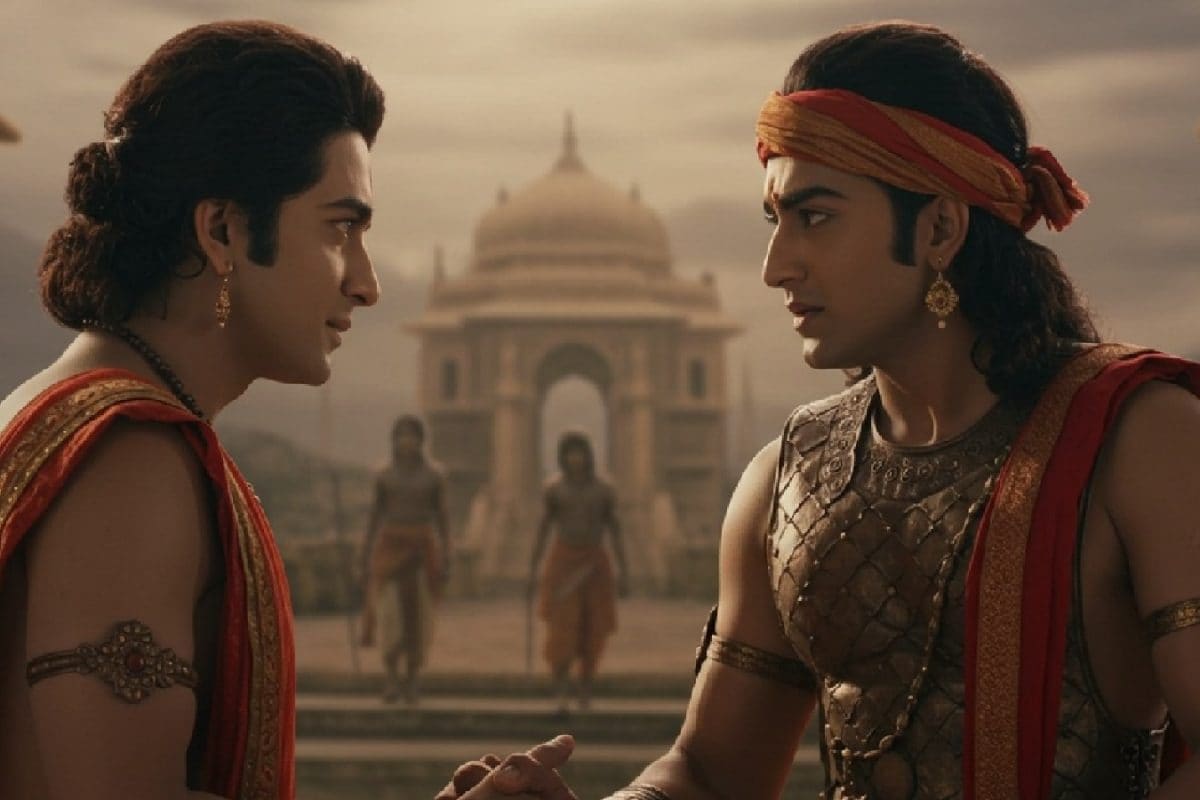If the claim is that the Duryodhana-Karna relationship is a paragon of true friendship, the truth is that it was anything but friendship. An inevitable line that appears typically at the bottom of invitation cards for auspicious occasions is also a good opening line for this essay series: “With best compliments from friends and well-wishers." It is so ubiquitous that we have not only taken it for granted but don’t even notice it, much less delve into the emotion that made it so universal across space and time.
The use of the conjunction that separates “friends" from “well-wishers" is rather intriguing. Wishing well for its own sake for another person is one of the purest expressions of the value known as ahimsa — the English equivalent, “non-violence" does not encompass the full range of this value. A friend is first a well-wisher and everything else later.

When the scope of this sentiment is expanded to accommodate the cosmos itself, it is known as Lokasangraha, a philosophical core that the Bhagavad Gita delineates so profoundly. A mere alignment of ideas or goals or hobbies or interests or a shared worldview or emotional necessity does not make for true friendship. The cement that glues all these bricks is an Americanism that has gained great traction in recent years: stake.
Or what is known as “shared interests." Stake is not friendship but transaction. The transactional element is present right in the word, “interest," which, in financial terms, is paid on the principal.
Nowhere else is this glaringly true than in the celebrated relationship between Duryodhana and Karna. Since a few centuries, it has been hailed as an exemplar of friendship. But in fact, it is the miscasting of the purely transactional relationship between Duryodhana and Karna, which has overturned values and created misleading narratives both about the Mahabharata and the Hindu society and culture.
This miscasting is a great disservice done on three planes. First, it insults the genius of Bhagavan Veda Vyasa. Second, it wounds the spirit of the Mahabharata.
Third, it subverts the fundamental tenets of Indian Aesthetics. The endurance of the myth of the “pure" and “ideal" friendship between Duryodhana and Karna is comparable to the myth that Mohandas Gandhi singlehandedly got India her freedom without firing a bullet. Fortunately, the Gandhi myth has pretty much exhausted its shelf life over the years.
However, the Duryodhana-Karna myth continues to sustain not on its own merit but for a variety of irrelevant and unconnected reasons. We can mention three here. The foremost reason is the inescapable magnetic power of the Mahabharata itself.
If we sever it from the protective and accommodative embrace of the Mahabharata, the Duryodhana-Karna “friendship" will resemble an ancient version of the puerile friendship of Jai and Veeru in Sholay. Depictions of this variety of friendship are emotionally appealing as drama but they are intrinsically vacuous on the plane of values. Or, to cite an even more absurd example, it will resemble the “friendship" between Surya and Devaraj in Maniratnam’s Dalapathi.
By his own admission, Dalapathi was Maniratnam’s “interpretation" of the story of Karna. This interpretation is entirely consistent with the Duryodhana-Karna myth. The second reason is the voluminous literary, dramatic and folk tradition that was captivated primarily by the emotional and passionate appeal in Karna’s character.
This was then imputed to his relationship with Duryodhana, and a nonexistent “true" friendship between the two was concocted. But this concoction came at the expense of violating the spirit of Bhagavan Veda Vyasa. To adduce just one example that shows this, the hugely popular story of Karna and Bhanumati (Duryodhana’s wife) does not occur in the original Mahabharata.
And so, even today, there are any number of Yakshagana and other dramatic forms that laud Karna as a tragic hero and an ideal friend. Perhaps the worst offender in this entire corpus of literary licentiousness is the 1977 Telugu movie, Daana Veera Shoora Karna. The third reason flows from the aforementioned precedents.
In recent times, the Duryodhana-Karna myth has acquired greater standing power owing to the relentless ideological perfidy of upending our epics by transforming villains into heroes and vice versa. Thus, Ravana has become the wronged hero of Srimad Ramayana and Duryodhana’s spotless hands have been forced to become bloody due to the obstinacy of the Pandavas. The same “logic" also alleges that Draupadi was secretly lusting after Karna.
The motive — as I have written elsewhere — behind all such distortions is to sunder our cultural roots and to thereby denationalise the Hindu society. The same motive has also birthed entire factories of “literary criticism" primarily aimed at dissuading people from reading the Ramayana and the Mahabharata in their originals. The spurious claim that “there is no original Ramayana and Mahabharata," is part of the same ideological charlatanry.
But in all such cases of derision, denial and distortion, a useful formula has evolved itself: in our verifiable experience, the truth is the exact opposite of what these ideological merchants spout. Thus, just as how it has been proven that secularism is the unwritten Quran of Nehru, the claim that Karna is a tragic hero is equally false. Likewise, if the claim is that the Duryodhana-Karna relationship is a paragon of true friendship, the truth is that it was anything but friendship.
We have Bhagavan Veda Vyasa’s word for it. (To be continued) The author is the founder and chief editor, The Dharma Dispatch. Views expressed in the above piece are personal and solely that of the author.
They do not necessarily reflect News18’s views..
Politics

Opinion | Karna And Duryodhana: Much Ado About A Phoney Friendship

If the claim is that the Duryodhana-Karna relationship is a paragon of true friendship, the truth is that it was anything but friendship.















